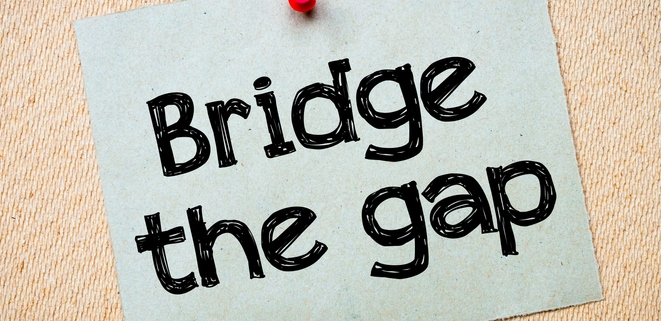Bridge the Gap
Earlier this year I was asked to moderate a two-day conference in Finland. The event, hosted by @FirstbeatTechnologies, brought together speakers from around the world and focused on the theme ‘Elements of Optimal Performance’. There were some excellent presentations from the world of health, sport and work but there was one phrase that really struck a chord when @JamesHewitt made the observation that ‘human beings have an incredible appetite for self-delusion’. I couldn’t agree more. It seems that there are a number of ‘gaps’ that occur in life, and in this blog I have taken a quick look at three examples, that I come across on a regular basis, where a bridge needs to be created.
Gap 1 – What we think we do and what we actually do
When working with teams I ask a series of questions that offer a subjective view; this is followed up by gaining an objective insight using physiological data. This approach provides a view of perception versus reality and demonstrates how there can be a significant disconnect between the two. There are two areas where this is typically seen. Firstly, when asking people whether they sleep enough, most people feel that this is not the case yet when we look at the duration of sleep it is usually greater than 7.5 hours. When asked whether they exercise at a level that will simply promote health, most people feel that this is the case yet the measured data suggests that it is rare for people to get more than 20 minutes of health promoting physical activity a day.
Gap 2 – What we want / what we know and our actions
The second disconnect is a simple one. If I ask people whether they are interested in being healthy, happy and energised I am pretty sure I have yet to come across someone who says no – this is an obvious and common desire. If the same people are asked questions that evaluate their knowledge around some of the foundation stones for health, happiness and energy – things like sleep, exercise, nutrition, etc – again I often hear insightful answers that demonstrate good knowledge on these topics. However, for all the desire and knowledge, if I ask people to examine their habits in these areas then it is often clear that there is a gap between desire, knowledge and action.
Gap 3 – Aligning our values and our actions
The last challenge revolves around peace of mind. When working with teams I often ask people to write down what they get up to week on week. They are then asked to list their values and articulate why these factors are truly important to them. This can be a tough exercise and sometimes requires a prompt so that they move on from the superficial and into the areas that really matter. The output from these two tasks often shows people that the life they are living is a million miles away from their underlying ethos, a conflict that may explain the increasing challenges around mental health.
Interestingly the gaps I have referenced often do not relate to work, they more typically revolve around life away from it so in my next blog I’ll take a look at work-life balance and make the case for work being ‘the goody’ in the relationship.



